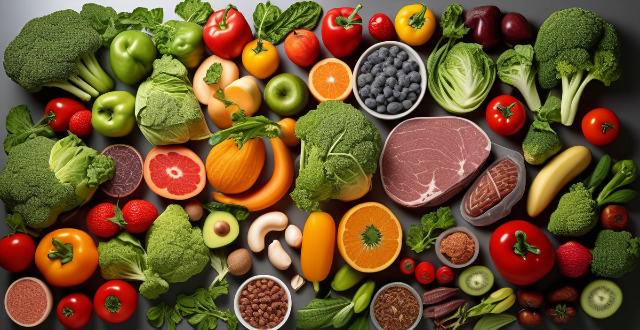An athlete's meal plan should include a variety of complex carbohydrates, lean proteins, healthy fats, and fruits & vegetables to support their training goals, optimize performance, and aid in recovery. The ideal meal plan includes breakfast with sustained energy sources like whole grains and fruits; snacks such as trail mix or protein shakes to keep energy levels steady; lunch focusing on lean proteins and leafy greens for muscle repair and nutrient replenishment; afternoon snacks like Greek yogurt or fruit smoothies to avoid energy crashes; dinner emphasizing lean proteins and complex carbs for muscle recovery and glycogen replenishment; and a pre-bed snack with slow-digesting protein and natural sleep aids like cherries or chamomile tea.

Ideal Meal Plan for an Athlete's Daily Routine
An athlete's meal plan should be designed to support their training goals, optimize performance, and aid in recovery. Here's a breakdown of the ideal meal plan for an athlete's daily routine:
1. Breakfast: Fuel Up for the Day
- Complex Carbohydrates: Whole grain bread, oatmeal, or quinoa to provide sustained energy.
- Protein: Eggs, Greek yogurt, or cottage cheese to build and repair muscle tissue.
- Fruits & Vegetables: Berries, bananas, spinach, or avocado to supply vitamins and minerals.
- Healthy Fats: Nuts, seeds, or avocado to support hormone production and overall health.
2. Snacks: Keep Energy Levels Steady
- Trail Mix: Combine nuts, seeds, and dried fruits for a portable snack.
- Protein Shake: Whey or plant-based protein powder with water or almond milk.
- Fresh Fruit: Apples, oranges, or pears are great options.
- Vegetable Sticks: Carrots, celery, or cucumber with hummus or nut butter.
3. Lunch: Restore Energy and Nutrients
- Lean Protein: Grilled chicken, fish, or tofu for muscle repair and growth.
- Complex Carbohydrates: Sweet potatoes, brown rice, or whole grain pasta for energy replenishment.
- Leafy Greens: Spinach, kale, or lettuce to add fiber and essential nutrients.
- Healthy Fats: Olive oil, avocado, or nuts to aid in nutrient absorption.
4. Afternoon Snack: Avoid the Crash
- Greek Yogurt: High in protein and calcium.
- Rice Cakes: With almond butter or jam for a quick energy boost.
- Hard-Boiled Eggs: Portable and packed with protein.
- Fruit Smoothie: Blend fruits with yogurt or milk for a refreshing treat.
5. Dinner: Refuel and Recover
- Lean Protein: Grilled salmon, turkey breast, or lentils for muscle recovery.
- Complex Carbs: Roasted vegetables or quinoa to replenish glycogen stores.
- Leafy Greens: Steamed broccoli, asparagus, or green beans for micronutrients.
- Healthy Fats: Dress your salad with extra virgin olive oil or add avocado slices.
6. Pre-Bed Snack: Ensure Overnight Recovery
- Casein Protein Shake: Slow-digesting protein to feed muscles while you sleep.
- Cherries: Natural source of melatonin to promote restful sleep.
- Chamomile Tea: Soothing beverage to relax before bedtime.
In conclusion, an athlete's meal plan should focus on balanced nutrition that includes a variety of complex carbohydrates, lean proteins, healthy fats, and plenty of fruits and vegetables. It's essential to space out meals and snacks throughout the day to maintain consistent energy levels and support optimal athletic performance and recovery.